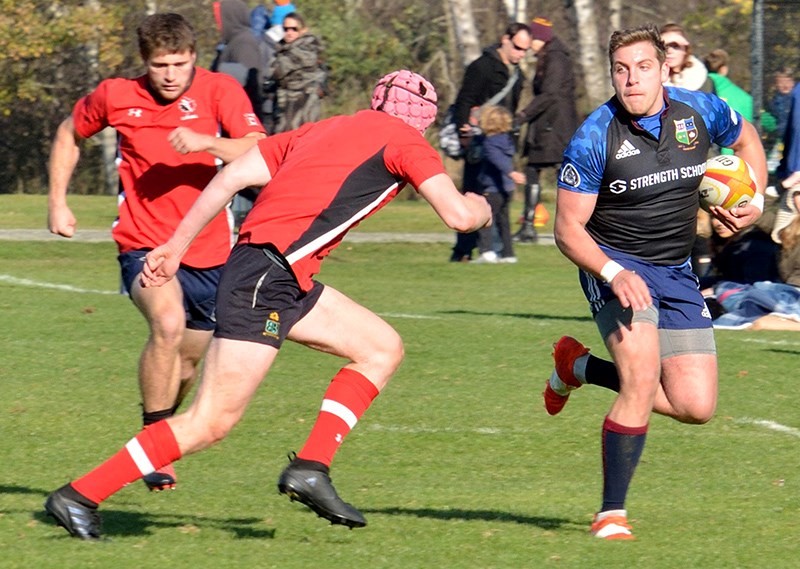Canada’s 51-6 loss to the Maori All-Blacks at BC Place recently shows just how far the men’s national rugby team has to go to play amongst the sport’s elite countries.
A new academy program at United Rugby Club may help reduce that chasm.
The academy, for elite players age 16 to 21, is led by Andy Evans, the former strength and conditioning coach for Rugby Canada.
Evans said the academy bridges the need for top-level development for rugby players who are graduating out of junior programs but may not be physically ready to play at the senior men’s level. It’s a gap he identified in his years working for the national program out of Victoria.
“I’d get these players from across Canada, and they weren’t physically and tactically prepared,” Evans said.
Now back in the Lower Mainland and working as an independent strength and conditioning consultant, Evans said he approached United with his academy idea as a way to give back to the sport in which he’s helped prepare Canada’s national U20 and senior men’s teams for competitions like the 2011 World Junior Trophy, the 2013 Sevens Rugby World Cup, 2014 Commonwealth Games, 2015 Pan Am Games and 2015 Rugby World Cup.
The academy is comprised of about 30 players, most of them under the age of 20, many of them recruited from high school programs in the Tri-Cities. The team practises twice a week at Mundy and Town Centre parks and competes in the BC U23 league with occasional test matches against touring teams and, recently, Canada’s national U19 team.
Evans said the academy replicates club-based programs in powerhouse rugby countries like New Zealand that develop players physically and mentally so they have the tools to step up to national programs and compete on the international turf.
“You can’t beat New Zealand just by walking into a game and being prepared,” Evans said. “They just live and breathe rugby the way Canadians do with hockey.”
Evans said the academy environment allows young players to grow and mature together, while still fitting rugby into their other life commitments like school and work.
“We try to stress discipline and work ethic,” Evans said. “If rugby is a priority and you want to excel, you can make it to practices and make to it Saturday games and perform well. Players aren’t partying as much as they used to; they’re drinking protein shakes instead of beer.”
While it’s still early days for United’s academy program — it started last May — Evans said he hopes as it evolves it will become a model for other clubs in B.C. and across the country to follow so graduating junior players can continue to develop and Rugby Canada can pluck the best of the best with the assurance those players have the physical and mental attributes to elevate the national team into the top tier.
“It makes it much more sustainable for these players to keep playing,” Evans said. “We need a better avenue to help develop players for the national and international levels.”



